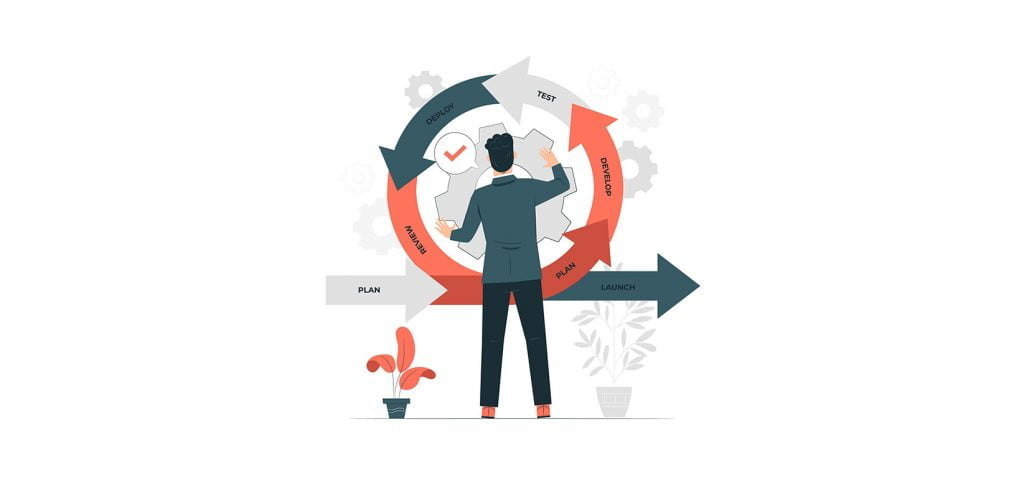Как преодолеть страх смены карьеры

Смена карьеры может быть одним из самых непростых и важных решений в жизни человека. Однако, слишком часто страх перед неизвестным и потерей стабильности может стать преградой на пути к личному и профессиональному развитию.
Страх смены карьеры – это психологическое состояние, которое характеризуется тревогой, неуверенностью, сомнениями и опасениями перед возможными последствиями такого решения. Эта фобия может быть вызвана различными факторами, такими как потеря стабильности, неудачи, критика, недостаток навыков или собственных ресурсов для успешной самореализации в новой профессии. Такое состояние может привести к прокрастинации, упущенным возможностям и ухудшению качества жизни.
Цель данной статьи – предложить систематический подход к преодолению данной проблемы и успешной адаптации к новой профессиональной среде. Мы рассмотрим различные причины страха, а также предложим стратегии и практические советы для их преодоления на основе авторитетных источников, опыта экспертов и реальных историй успеха.
Причины
1. Утрата стабильности и безопасности
Одной из основных причин страха смены карьеры является опасение потерять стабильность и безопасность, которые предоставляет текущая работа. Это может включать стабильный доход, социальные гарантии, привычное рабочее окружение и коллектив.
2. Страх неудачи или критики
Многие люди боятся, что их попытка сменить карьеру окончится неудачей, что они не смогут найти новую работу или преуспеть в ней. Кроме того, страх критики со стороны коллег, друзей и семьи может усугублять эти опасения.
3. Сомнение в собственных способностях и навыках
Неуверенность в своих способностях и навыках, а также сомнение в том, что можно успешно освоить новую профессию, является еще одной причиной страха смены карьеры.
4. Неопределенность и неизвестность
Страх перед неизвестным и неопределенностью, связанные со сменой профессии, также могут вызывать стресс и тревогу. Это может включать неопределенность в отношении того, как новая работа повлияет на личную жизнь, доход и будущее.
Стратегии преодоления страха
1. Анализ причин страха
Прежде чем преодолеть страх, важно определить его причины. Рассмотрите каждый из вышеупомянутых факторов и определите, какие из них являются наиболее актуальными для вас. Это поможет сосредоточиться на конкретных проблемах и найти способы их решения.
2. Формирование реалистичного плана
Постройте план смены карьеры, который будет включать конкретные шаги, сроки и ресурсы, необходимые для достижения новой профессиональной цели. Разбейте процесс на маленькие этапы, чтобы сделать его более управляемым и измеримым.
3. Развитие навыков и обучение
Инвестируйте в обучение и развитие навыков, которые необходимы для новой карьеры. Это может включать профессиональные курсы, сертификации, обучение на рабочем месте или самостоятельное изучение материалов. Обратите внимание на раздел Образование в GeekLink, в котором вы сможете подобрать нужные программы обучения из нескольких тысяч онлайн-курсов топовых образовательных платформ.
4. Создание сети поддержки
Поддержка со стороны друзей, семьи, коллег или профессиональных коучей также помогает преодолеть страх и укрепить уверенность в своих силах. Общайтесь с людьми, которые прошли через смену карьеры и могут предложить советы и рекомендации.
5. Управление рисками и разработка стратегии преодоления проблем
Идентифицируйте возможные риски, связанные со сменой карьеры, и разработайте план действий для их преодоления или минимизации. Это может включать создание финансовой «подушки безопасности», рассмотрение временной или неполной занятости в переходный период, а также приобретение дополнительных навыков и опыта на стажировках.
6. Отработка адаптивных стратегий и гибкости мышления
Развитие гибкости мышления и умение адаптироваться к переменам является важным навыком для успешной смены карьеры. Отработка адаптивных стратегий может включать использование техник стресс-менеджмента, обучение решению проблем и управлению временем.
Практические советы
1. Консультации экспертов и карьерных коучей
Обратитесь к экспертам и карьерным коучам за профессиональными советами и рекомендациями, которые помогут вам преодолеть страх и успешно реализовать план смены карьеры.
2. Изучение успехов и провалов других людей
Изучение историй успеха и провалов других людей, прошедших через процесс смены карьеры, может помочь вам извлечь ценные уроки и определить свою собственную стратегию развития.
3. Определение мотивации и желаемых результатов
Определите, что вас мотивирует и какие результаты вы хотите достичь. Это поможет сохранить вашу мотивацию и сосредоточенность на долгосрочных целях.
4. Задействование эмоционального интеллекта
Развитие эмоционального интеллекта поможет вам лучше управлять своими эмоциями и стрессом, связанным со сменой карьеры. Используйте техники саморефлексии, эмпатии и управления эмоциями для более успешного преодоления вызовов, связанных с этим процессом.
Психологические аспекты
1. Работа над самооценкой
Работа над укреплением самооценки и уверенности в себе поможет преодолеть страх смены карьеры. Применяйте техники позитивного самоутверждения, отслеживайте свои достижения и отмечайте их, чтобы усилить веру в себя.
2. Методы снижения стресса и управления эмоциями
Применяйте техники снижения стресса и управления эмоциями, такие как медитация, йога, дыхательные упражнения и прогулки на свежем воздухе, чтобы справиться с тревогой, связанной со сменой карьеры.
3. Осознание собственных ценностей и представлений о себе
Рефлексия над собственными ценностями и представлениями о себе поможет разобраться в своих страхах и определить, что действительно важно для вас в профессиональной жизни. Это поможет вам сосредоточиться на том, что действительно имеет значение и что вам нужно изменить для достижения желаемых результатов.
4. Применение техник позитивной психологии
Позитивная психология помогает сосредоточиться на своих сильных сторонах, достижениях и возможностях, а также учит более эффективно справляться со стрессом и эмоциями. Используйте техники, такие как позитивное мышление, благодарность и упражнения на осознанность, чтобы укрепить свою уверенность и справиться со страхом смены карьеры.
Примеры известных кейсов
1. Истории успешных людей
Изучите истории успешных людей, которые смогли преодолеть себя и кардинально изменить свою профессиональную жизнь. Это поможет вам увидеть, что смена карьеры возможна и вдохновит вас на перемены.
Вот несколько всем известных примеров:
- Джефф Безос
Джефф Безос — основатель Amazon, который начал свою карьеру в Wall Street, работая на компанию D.E. Shaw & Co. Он был одним из первых, кто увидел потенциал интернет-торговли, и решил начать свой бизнес. Хотя в начале у него были множественные препятствия и финансовые риски, он все же решился на этот шаг и сегодня является одним из самых богатых людей в мире.
- Джек Ма
Джек Ма — основатель Alibaba, крупнейшей в мире интернет-торговой платформы, начал свою карьеру как учитель английского языка. Он не имел никаких знаний в области IT, но в 1995 году, во время своей поездки в США, он увидел Интернет впервые и решил начать свой бизнес. Его первая попытка закончилась неудачей, но это не остановило его. Сегодня Alibaba является одной из самых успешных IT-компаний в мире, а Джек Ма является одним из самых богатых людей в Китае.
- Тим Кук
Тим Кук — генеральный директор Apple, который начал свою карьеру в IBM в 1982 году. Он работал в IBM в течение 12 лет, а затем перешел в компанию Compaq, где работал еще 6 лет, прежде чем перейти в Apple в 1998 году. В Apple он начал работать на должности вице-президента по международным операциям, а затем стал главным операционным директором. В 2011 году он стал генеральным директором Apple после ухода Стива Джобса. Тим Кук успешно справился с задачей сохранения и развития бренда Apple, а также совершенствования производственной цепочки компании.
- Шон Паркер
Шон Паркер — один из сооснователей Napster, пиратской программы обмена файлами, которая была запрещена в 2001 году. После этого он переключил свое внимание на социальные медиа и стал сооснователем компании Plaxo. Затем он вложил свои средства в Facebook и стал первым президентом компании, который помог ей стать одной из самых успешных социальных медиа-платформ в мире.
- Тим Бернерс-Ли
Тим Бернерс-Ли — основатель Всемирной паутины, начал свою карьеру в CERN, где он работал над разработкой программного обеспечения. В 1989 году он предложил создать глобальную сеть, которая была бы доступна всем. Этот проект был основой для создания Всемирной паутины, которая изменила мир.
- Марисса Майер
Марисса Майер — бывший генеральный директор Yahoo!, начала свою карьеру в Google, где она работала более 10 лет на различных должностях, включая вице-президента и главного дизайнера продуктов. Она внесла значительный вклад в развитие Google, включая разработку интерфейса пользователя и улучшение поисковой системы. В 2012 году она перешла в Yahoo!, где смогла стабилизировать бизнес и провести ряд успешных сделок.
- Дженнифер Хайман
Дженнифер Хайман — бывший дизайнер украшений, переквалифицировалась в разработчика приложений в 2011 году. Она прошла обучение в школе по разработке приложений и создала свою первую компанию в области IT. Ее компания — Fueled — специализируется на разработке мобильных приложений и успешно работает с клиентами по всему миру.
- Линус Торвальдс
Линус Торвальдс — создатель операционной системы Linux, начал свою карьеру как студент в Хельсинкском университете. Он начал работать над созданием своей операционной системы в 1991 году и смог привлечь к себе сообщество разработчиков, которые помогли ему усовершенствовать систему. Сегодня Linux является одной из самых популярных операционных систем в мире, используемой во многих компаниях и организациях.
- Сьюзан Вулфф
Сьюзан Вулфф — бывший журналист, перешла в IT-индустрию в 2010 году. Она начала работать в качестве разработчика в компании Google, где быстро смогла проявить себя. Затем она перешла в Dropbox, где стала одним из руководителей. Сегодня она является главным технологическим офицером компании Credit Karma.
- Эрик Юан
Эрик Юан — основатель и генеральный директор компании Zoom, начал свою карьеру в WebEx, где он работал в качестве инженера программного обеспечения. В 2011 году он основал свою компанию — Zoom, которая стала одной из самых популярных видеоконференц-платформ в мире.
2. Анализ факторов успеха и стратегий, использованных этими людьми
Все люди, упомянутые выше, смогли достичь больших успехов в IT-индустрии, но они использовали разные стратегии и подходы. Однако, можно выделить несколько факторов, которые сыграли важную роль в их успехе:
- Уверенность в себе и своих способностях.
- Усердная работа и постоянное обучение.
- Инновационность и творческий подход.
- Способность к адаптации и готовность к изменениям.
- Умение работать в коллективе.
3. Извлечение полезных уроков и рекомендаций
На основе анализа примеров успешных кейсов, выделите полезные уроки и рекомендации, которые помогут преодолеть свои страхи и успешно реализовать свои профессиональные амбиции:
- Не бойтесь рисковать и принимать решения. В IT необходимо быть готовым к риску и принимать решения, которые могут оказаться рискованными. Но важно также не забывать о том, что нужно анализировать риски и быть готовым к неудачам.
- Учитесь на протяжении всей своей карьеры. Важно постоянно совершенствовать свои навыки и учиться новому. Будьте готовыми к тому, что в IT постоянно появляются новые технологии.
- Подходите к делам творчески. Нужно смотреть на вещи с разных сторон и находить новые решения.
- Адаптируйтесь к новым условиям. Важно следить за трендами рынка и гибко реагировать на изменения.
- Развивайте коммуникативные навыки и умение работать в коллективе. Слушайте других, давайте обратную связь и выносите полезные уроки из конструктивной критики.
Часто задаваемые вопросы и ответы на них
1. Как определить, что пора менять карьеру?
Признаки того, что пора менять карьеру, могут включать усталость от текущей работы, недостаток перспектив роста, проблемы со здоровьем или балансом между работой и личной жизнью, а также стремление к самореализации в другой области.
2. Какие профессии наиболее востребованы и перспективны?
Востребованные и перспективные профессии могут меняться с течением времени, поэтому рекомендуется изучать отраслевые тенденции и аналитические отчеты, чтобы определить, какие профессии будут востребованы в будущем. Рекомендую ознакомиться со статьей Какие технологии будут определять развитие IT индустрии в ближайшие годы и как их изучать.
3. Как найти время и средства для обучения новой профессии?
Для нахождения времени и средств на обучение новой профессии можно использовать различные стратегии, такие как гибкий график работы, дистанционное обучение, получение стипендий или грантов, а также сокращение ненужных расходов.
4. Как совмещать смену карьеры с личной жизнью и семейными обязательствами?
Совмещение смены карьеры с личной жизнью и семейными обязательствами требует хорошей организации времени и поддержки со стороны близких. Разработайте гибкий график, выделите время для обучения и развития навыков, а также обсудите свои планы с членами семьи и друзьями, чтобы получить их поддержку в этот период перемен.
Заключительные слова
Преодоление страха смены карьеры является ключевым фактором успеха. Только преодолев свои фобии и сомнения, вы сможете открыть для себя новые возможности и достичь профессиональной самореализации.
Не бойтесь перемен, связанного с сменой карьеры. Вместо этого, сосредоточьтесь на своих целях, мотивации и стремлении к росту. Используйте представленные в статье советы и стратегии, чтобы сделать первые шаги в направлении желаемых перемены и преодолеть свои страхи.
Если вам есть, чем дополнить статью или вы хотите поделиться своим опытом, напишите комментарий ниже.
Подписывайтесь на мой профиль, чтобы прочитать другие опубликованные карьерные статьи и не пропустить новые.
Список использованных источников:
- «Тревожность и страх перед изменениями в карьере» (Anxiety and Fear of Career Change), исследование, опубликованное в журнале Journal of Vocational Behavior.
- «Как преодолеть страх смены карьеры: рекомендации психологов» (How to Overcome the Fear of Career Change: Recommendations from Psychologists), статья на сайте Psychology Today.
- «Смена карьеры: как преодолеть страх и достичь успеха» (Career Change: How to Overcome Fear and Achieve Success), статья на сайте Forbes.
- «Советы для тех, кто решил сменить карьеру» (Tips for Those Who Decided to Change Careers), статья на сайте Harvard Business Review.






 , а затем
, а затем
Комментарии